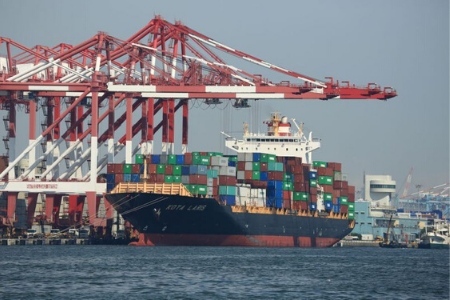
U.S. ruling against Chinese exporters welcomed by Taiwanese textile firms
YarnsandFibers News Bureau 2019-11-27 08:36:49 – TaiwanThe final rulings earlier this month by the United States Department of Commerce that China and India have been dumping certain textiles on the U.S. market were welcomed by most Taiwanese textile exporters as chance to compete in a fair market.
In a statement issued Nov. 14, the U.S. DOC said after an investigation, it found that exporters from China and India had dumped polyester textured yarn (PTY) in the U.S. market at margins ranging from 76.07 percent to 77.15 percent and 17.62 to 47.51 percent, respectively.
The DOC said it has also issued a final ruling after finding Chinese and Indian polyester textured yarn received countervailable subsidies at rates ranging from 32.18 percent to 473.09 percent and 4.29 percent to 21.83 percent, respectively.
Based on the findings, the Department of Commerce has imposed anti-dumping and anti-subsidy tariffs on Chinese and Indian PYT exporters.
In response to the rulings, some Taiwanese companies said the heavy anti-dumping and anti-subsidy tariffs imposed by the U.S. in the case will give Taiwanese exporters a break from the unfair competition waged by their Chinese counterparts.
In the rulings, the DOC has imposed a 76.07 percent anti-dumping financial burden on products sold by China's Jiangsu Hengli Chemical Fiber Co., which was the mandatory respondent in the case, and a 77.15 percent tariff on other Chinese exporters.
In addition, Indian firms are slapped with 17.62 percent to 47.51 percent anti-dumping tariffs, according to the DOC.
Meanwhile, the DOC has also ruled to impose anti-subsidy tariffs ranging between 32.18 percent and 473.09 percent on China's Fujian Billion Polymerization Fiber Technology Industrial Co., Suzhou Shenghong Garmant Development Co. and Suzhou Shenghong Fibre Co., which were the mandatory respondents in the case., while a 32.18 percent tariff has been imposed on other Chinese firms.
For India, the anti-subsidy tariffs ranged between 4.29 percent and 21.83 percent.
The investigations were launched after Nan Ya Plastics Corp. America, a subsidiary of Taiwan's Nan Ya Plastics Corp., and U.S.-based Unifi Manufacturing, Inc. brought a petition against Chinese and Indian exporters.
Lealea Enterprises Co., a Taiwanese manufacturer of artificial fiber, said it had almost given up on the U.S. market due to the unfair competition from China.
With the heavy tariffs now imposed on Chinese PTY exporters, however, Taiwanese companies will have a chance to return to the U.S. market, Lealea said.
Nan Ya Plastics, meanwhile, said its American subsidiary is likely to see an increase in orders from Unifi, which is one of its customers, as a result of the heavy tariffs imposed on Chinese and Indian companies.
Some other Taiwanese exporters, however, said it remains to be seen whether the ruling will result in any benefits, but they think it will serve as a bargaining chip for the U.S. in its negotiations with China as the two countries seek to resolve their trade disputes.
According to Nan Ya Plastics, after the petition was filed with U.S. authorities, PTY exports from China and India to the U.S. fell to 229 tons and 341 tons per month on average, respectively, as of September of 2019 from 1,939 tons and 1,006 tons as of January 2018.
According to industry sources, Chinese firms that face heavy tariffs in the U.S. are likely to sell their products on the domestic market, which would tighten the competition for Taiwanese companies operating in China, including Nan Ya Plastics. By Pan Yi-ching and Frances Huang.
Courtesy: Focus Taiwan
Market Intelligence
Ask for free sample Report

experience
Customer Base
dedicated team
Countries Served Worldwide









